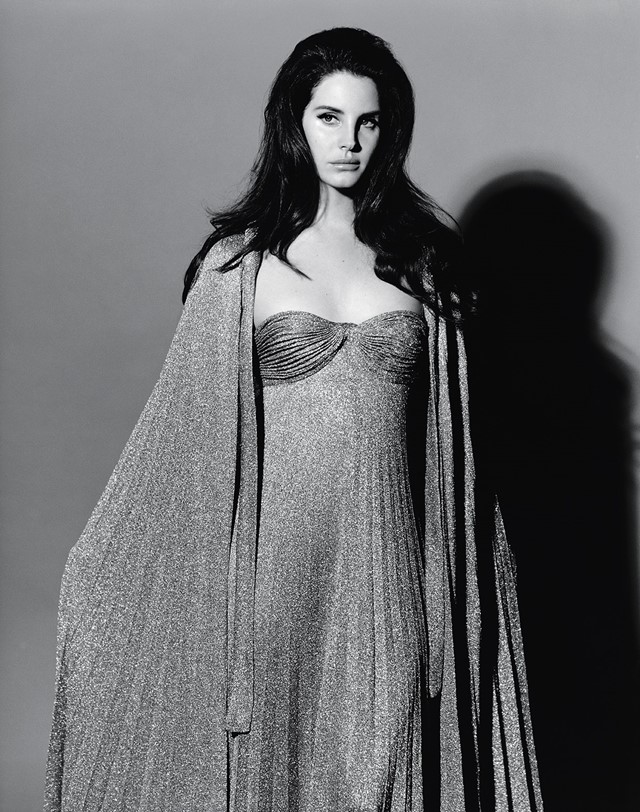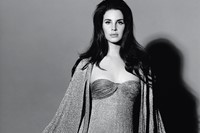We trace the history of the torch song through Lana Del Ray's lovelorn chants and the women who have inspired her identity as a sad, sad girl
“I like you a lot, so I do what you want,” croons Lana Del Rey in 'Music To Watch Boys To' – a song from her new album, whose video she released last week. Despite this dreamy melancholic mantra (which is repeated the entire way though), the song actually – in just under five minutes – covers almost all of the key bases of the classic female-perspective torch song. There is, as the initial phrase alludes to, a troubled romance, there is – implied in the opener, but made even more explicit with the world weary “It’s all a game to me anyway” – the idea of love being a game. There's the notion of being a girl's girl, and of complicated, flawed women: “I know what only the girls know, Hoes with lies akin to me.” There's even the objectification of men presented through a lustful female gaze, as implied both by the song’s title and the line (chanted throughout) “Putting on my music while I’m watching the boys.” It's definitely qualified its entry into the oft-forgotten category.
The torch song isn’t genre-specific but always deals with the themes of love, loss and longing. It can either feel bleakly despondent, emotionally spent, or be electric with desire. In an interview with Cabaret Confessional, Piers Ford, founder of The Art of The Torch Singer blog, said: “[Torch singers have] the ability to tell a story in song, with emotional conviction. Singers like these can hold a room in the palm of their hands, make the audience identify in a single note or word with the experience that they are singing about.” Of course, there are male singers who have sung what could be thought of as torch songs – Frank Sinatra’s more sorrowful crooning, for example – but there is a unique quality to the female experience as told via the medium. Here, AnOther traces the historical echoes of some of the key motifs of Lana Del Rey’s sad girl trope.
Lust
One of the main points of difference that separates a torch song from a generic love song is that the attraction is primarily physical. “Blue jeans, white shirt; walked into the room you know you made my eyes burn,” sings Lana Del Rey in ‘Blue Jeans’, from her 2012 album Born to Die. But perhaps one of the most famously lustful songs of all time is Peggy Lee’s breathless classic ‘Fever’, where she sighs, “When you put your arms around me, I get a fever that's hard to bear.” The lust in torch songs is almost always an attraction to unsuitable men – something that Billie Holliday demonstrates in ‘I Must Have That Man’, in which she tells us that even though the “boy can cheat” she “must have that man; He’s hot as Hades.” Lust is blinding too for fellow torch pioneer Dusty Springfield, whose self-control is weakened by it. In Easy Evil, she sings again about a no-good man she’s drawn to “like a moth to a flame”; “I'm a puppet for you baby,” she purrs helplessly.
Toxic Relationships
Many of the relationships we hear about in torch songs are not just your simple case of heartbreak, but are toxic, codependent scenarios, epitomised by The Crystals’ twisted confessional ‘He Hit Me (And It Felt Like a Kiss)’. The exact line is borrowed by Del Rey in ‘Ultraviolence’, where she also calls her lover her “cult leader,” such is the hypnotic hold he has over her. From Dusty Springfield’s admission, “No matter how you hurt me, I'll always be your fool”, to The Exciters’ messed-up disclosure: “He makes me do things I don’t want to do… He’s got the power, the power of love over me”, stories of women who just can’t help falling for men who treat them badly is a familiar story in torch songs. Closely related, are some self-destructive behaviours displayed in some songs, with alcoholism being a common theme. “And I still get trashed, darling, when I hear your tunes,” Del Rey sings in ‘Terrence Loves You’ from her new album Honeymoon; “I hate my alcoholic logic; As I write this on the train; Victoria's Secret in my bag, and my thighs ache again,” relays a regretful Amy Winehouse in ‘Alcoholic Logic’.
The Disreputable Woman
The females singing torch songs are flawed; they aren’t angels ruined by a callous man, but complicated and with vices of their own. In ‘A Woman’s Story’, the rare 1975 track produced by Wall of Sound pioneer Phil Spector, Cher sings, “There are many who have laid with me, then got up and walked away from me.” “My reputation was all over town,” she goes on to say, echoed in Winehouse’s iconic line, “I told you I was trouble, you know that I’m no good.” Nina Simone’s promiscuous, morally-Laissez-faire woman in ‘The Other Woman’, tells of the glamorous yet lonely life of a mistress: “The other woman finds time to manicure her nails. The other woman is perfect where her rival fails,” but “The other woman will never have his love to keep, and as the years go by the other woman will spend her life alone.” It was covered on Ultraviolence by Del Rey, who’s also sung about being a “bad bitch on the side” (Sad Girl) and taunted, “I know your wife and she wouldn’t mind.”
A Girl’s Girl
Despite men being the primary focus of most torch songs, sometimes they are directed towards the singer’s fellow women, finding a sense of camaraderie in shared experiences. “We all look for heaven and we put our love first; something that we'd die for, it's our curse,” explains Del Rey in ‘This Is What Makes Us Girls’, which mirrors the sentiment of ‘Judy Garland’s Little Girl Blue’, some eight decades earlier: “Ah, my unhappy, my unlucky; And my little, oh, girl blue, I know you're unhappy. Ooh, honey I know, baby I know just how you feel.” Sometimes the message to the fellow girl isn’t one of understanding but of appealing to some code of sisterhood not to play a part their romance breaking down. In ‘He’s All I Got’ The Supremes’ protagonist pleads with a woman who has been spreading lies to “For once in your life consider another's feelings - confess the truth,” while Dolly Parton’s iconic Jolene, begs an attractive rival “please don't take my man.”






